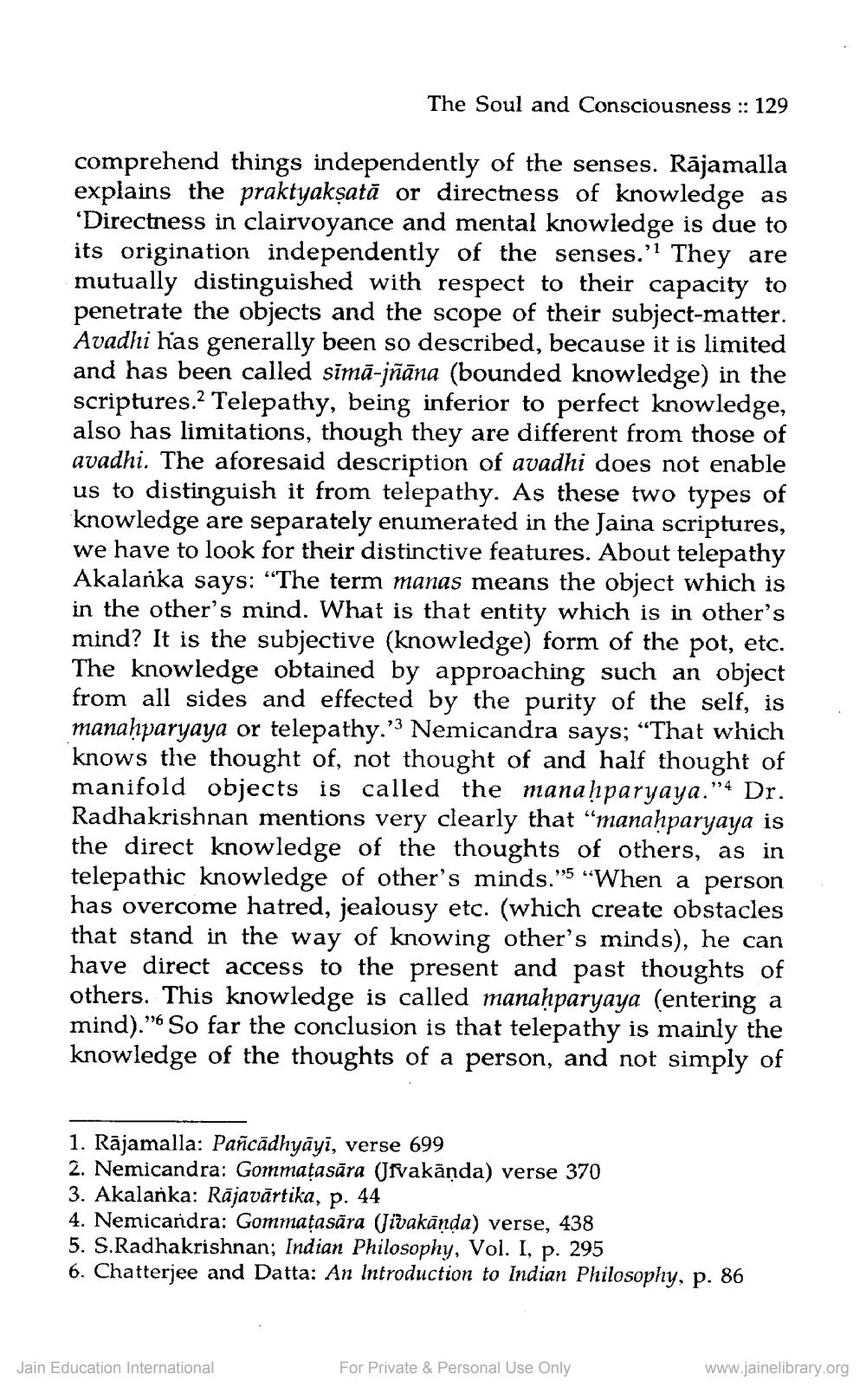________________
The Soul and Consciousness :: 129
comprehend things independently of the senses. Rājamalla explains the praktyakşată or directness of knowledge as ‘Directness in clairvoyance and mental knowledge is due to its origination independently of the senses.' They are mutually distinguished with respect to their capacity to penetrate the objects and the scope of their subject matter. Avadhi has generally been so described, because it is limited and has been called simā-jñāna (bounded knowledge) in the scriptures.? Telepathy, being inferior to perfect knowledge, also has limitations, though they are different from those of avadhi. The aforesaid description of avadhi does not enable us to distinguish it from telepathy. As these two types of knowledge are separately enumerated in the Jaina scriptures, we have to look for their distinctive features. About telepathy Akalanka says: "The term manas means the object which is in the other's mind. What is that entity which is in other's mind? It is the subjective (knowledge) form of the pot, etc. The knowledge obtained by approaching such an object from all sides and effected by the purity of the self, is manahparyaya or telepathy.'3 Nemicandra says; “That which knows the thought of, not thought of and half thought of manifold objects is called the manałparyaya.”4 Dr. Radhakrishnan mentions very clearly that "manahparyaya is the direct knowledge of the thoughts of others, as in telepathic knowledge of other's minds."5 "When a person has overcome hatred, jealousy etc. (which create obstacles that stand in the way of knowing other's minds), he can have direct access to the present and past thoughts of others. This knowledge is called manaḥparyaya (entering a mind).” So far the conclusion is that telepathy is mainly the knowledge of the thoughts of a person, and not simply of
1. Rājamalla: Pañcādhyāyī, verse 699 2. Nemicandra: Gommațasāra (Jivakāņda) verse 370 3. Akalanka: Rājavārtika, p. 44 4. Nemicandra: Gommata sāra (Jivakanda) verse, 438 5. S.Radhakrishnan; Indian Philosophy, Vol. I, p. 295 6. Chatterjee and Datta: An Introduction to Indian Philosophy, p. 86
Jain Education International
For Private & Personal Use Only
www.jainelibrary.org




